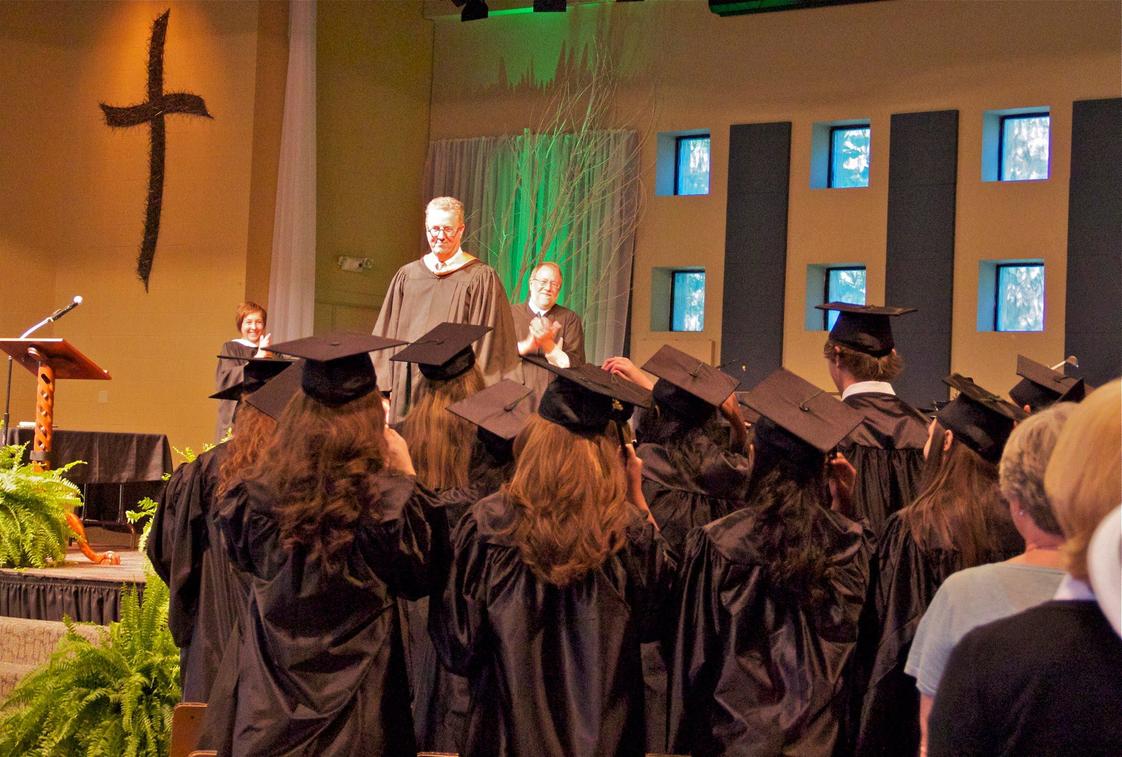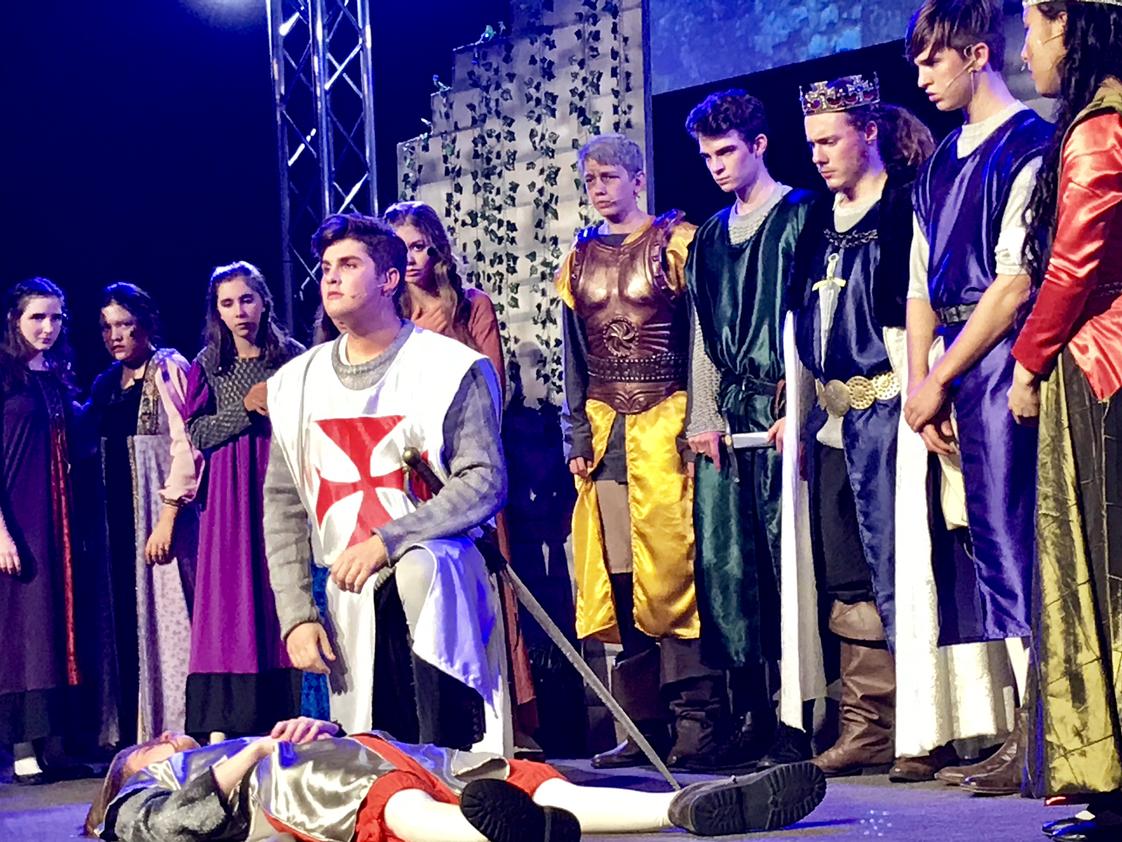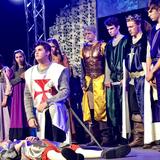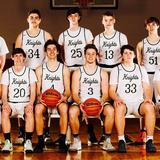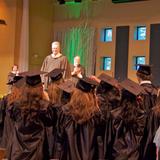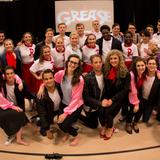Franklin Classical School's curriculum is both college preparatory and missions preparatory; it is both academically accelerated and socially responsive; it is both community oriented and globally minded.
FCS offers a full curriculum for grades K12. Our curriculum allows students to graduate with all necessary state credits, yet the school is still structured so that parents may choose to homeschool select subjects.
We offer an array of student life activities that include athletics, drama and musical productions, and special interest clubs.
FCS has been a member in good standing of the Association of Christian Schools International since 1996 and Association of Classical Christian Schools since 2004.
Quick Stats (2025)
- Top Ranked TN School
- Grades: Kindergarten-12
- Enrollment: 258 students
- Yearly Tuition: $10,250
- Acceptance rate: 75%
- Average class size: 20 students
- Application Deadline: Apr. 1 / Jun. 1 / rolling
- Source: Verified school update
Top Rankings
Franklin Classical School ranks among the top 20% of private schools in Tennessee for:
Category
Attribute
Acceptance Rate
School Overview
School Membership(s)School Assoc.
Religious Affiliation
Grades Offered
Grades Kindergarten-12
Year Founded
1992
School Calendar
Student Body
Total Students
258 students
Student Body Type
Co-ed
Students by Grade
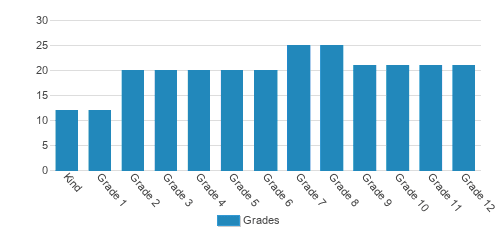
Academics and Faculty
Total Classroom Teachers
28 teachers
Student : Teacher Ratio
9:1
National avg.: 13:1
Average Class Size
20 students
Average ACT score
24
(Out of 36)
Matriculation DataMatric. Data
Classroom Dress Code
Casual
Modest Clothing Dress Code (School Colored Collared Shirts for K-6; Modest Attire 7-12th)
Tuition and Acceptance Rate
Admission Deadline
Apr. 1 / Jun. 1 / rolling
Yearly Tuition Cost
$10,250
Tuition Notes
Grades K - 6th – $10,250
Grades 7th - 12th – $8,450–9,150
Elective course: – $475 - $980
% on Financial Aid
30%
Acceptance Rate
75%
National avg.: 85%
Admissions Director
Anna Floit
Admissions Associate
Melinda Mahand
Sports
Total Sports Offered
8 sports
Sports
School Notes
- The mission of Franklin Classical School is to provide a biblically-based education that is both academically excellent and spiritually vital to enable young men and women to know and serve the Lord Jesus Christ and to transform families, institutions, and nations for the glory of God.
- The three-fold vision of Franklin Classical is to:
- 1.Raise up the next generation of Christian cultural and spiritual leaders;
- 2.Model a biblical pattern of discipleship through parent-directed, covenantal, and classical education;
- 3.Lay foundations for economic and social justice, artistic excellence, intellectual achievement, worldview discernment, physical health, and evangelistic passion so that each student may ultimately attain their high calling and realize their destiny. Therefore the curriculum is both college preparatory and missions preparatory; it is both academically accelerated and socially responsive; it is both community oriented and globally minded.
- FCS offers a full curriculum for grades K-12. Our college preparatory curriculum allows students to graduate with all necessary state credits, yet the school is still structured so that parents may choose to homeschool for select subjects. Fine Arts and Athletic curricula have been exciting areas of growth for FCS in recent years.
- Classical Education seeks to build wisdom in the lives and hearts of students. True education is far more than simply the accumulation of knowledge and understanding. True education is doing what we know to be right rather than simply believing in it. This approach teaches students to love learning, think soundly, and communicate persuasively. In the western world, our culture has grown from the heritage of the ancient Hebrews, Greeks, and Romans. Their foundations of learning, law, theology, and customs have shaped our way of life today. Classical Education, therefore, stems from a teaching method developed by early Christians, which revolves around the Seven Liberal Arts. Classical education grew as the gospel spread throughout the ancient classical world and continued to develop throughout the Middle Ages with remarkable success. The first three of these Seven Liberal Arts were called the Trivium and comprised the means by which students were given the "tools of learning." The first, grammar, concerns the specific content knowledge of a subject. Logic is the second and deals with the reasoning which ties the facts together. Finally, Rhetoric is used to teach the students how to express what they have learned in a polished and effective manner. These aspects of the Trivium correspond to what the writer of Proverbs termed "knowledge," "understanding," and "wisdom."
- Education, by its very nature, must address the great question of life. Who am I? Why am I here? How must I live? Every school answers these questions through their own worldview lense, whether implicitly or boldly stated. At Franklin Classical School, our foundational worldview is the unchangeable Word of Godthe Bible. Because God created the world and everything in it, all creation is subject to Him. Because God revealed Himself in His creation, in the Bible, and in His Son Jesus Christ, we may confidently teach all subjects in the light of His Lordship. This, in turn, affects more than mere academics. We strive to practice biblical living and teaching everywhere, not only in our curriculum, but in the lives of our administration and staff. We are absolutely committed to the central principles of the Christian faith, but allow for a variety of convictions on secondary doctrinal principles. Our staff represents many different evangelical churches, and the same is true of the vast majority of our student body. The students consequently live in a Christian culture dominated by the authority of the Word of God. As we seek to build Christian unity between the families of the school, we also pray that Franklin Classical School will never drift from stressing the importance of a consistent and personal adherence to the Gospel of our Lord Jesus Christ.
- FCS has been a member in good standing of the Association of Christian Schools International since 1996 and Association of Classical Christian Schools since 2004. FCS is established as a 501-C3 non-profit organization with the Internal Revenue Service.
- We would love to get to know your family as you seek the best educational option for your students! Feel free to contact us at 615-528-3777 ext. 1020 or Admissions@franklinclassical.com.
Source: Verified school update
Frequently Asked Questions
How much does Franklin Classical School cost?
Franklin Classical School's tuition is approximately $10,250 for private students.
What is the acceptance rate of Franklin Classical School?
The acceptance rate of Franklin Classical School is 75%, which is lower than the national average of 86%. Franklin Classical School's acceptance rate is ranked among the top private schools in Tennessee with low acceptance rates.
What sports does Franklin Classical School offer?
Franklin Classical School offers 8 interscholastic sports: Archery, Basketball, Cross Country, Football, Golf, Soccer, Tennis and Volleyball.
What is Franklin Classical School's ranking?
Franklin Classical School ranks among the top 20% of private schools in Tennessee for: Lowest average acceptance rates.
When is the application deadline for Franklin Classical School?
The application deadline for Franklin Classical School is Apr. 1 / Jun. 1 / rolling (applications are due on Apr. 1 / Jun. 1 but additional applications are reviewed year-round as space permits ).
School Reviews
Endorse Franklin Classical School. Endorsements should be a few sentences in length. Please include any comments on:
- Quality of academic programs, teachers, and facilities
- Availability of music, art, sports and other extracurricular activities
- Academic or athletic awards
Recent Articles

A Parent's Guide To Understanding High School Teaching Methods
This comprehensive guide helps parents navigate the various teaching methods used in today's high school classrooms. By understanding these approaches, you'll be better equipped to support your teen's learning journey, communicate effectively with teachers, and create a complementary learning environment at home.

February 08, 2025
Social Emotional Learning: Education's Hidden SymphonyA musician's perspective on Social Emotional Learning reveals how this educational framework orchestrates success through five essential emotional competencies.

January 24, 2025
A Roadmap For Starting A Private SchoolUse this roadmap as a set of talking points with your trusted mentors and professionals to start the private school of your dreams. You're not alone. Over the years, hundreds of folks like you have had the same dream. From Quintilian to Maria Montessori to Lucy Madeira Wing, visionary educators have established schools to teach according to their beliefs and methodologies.

